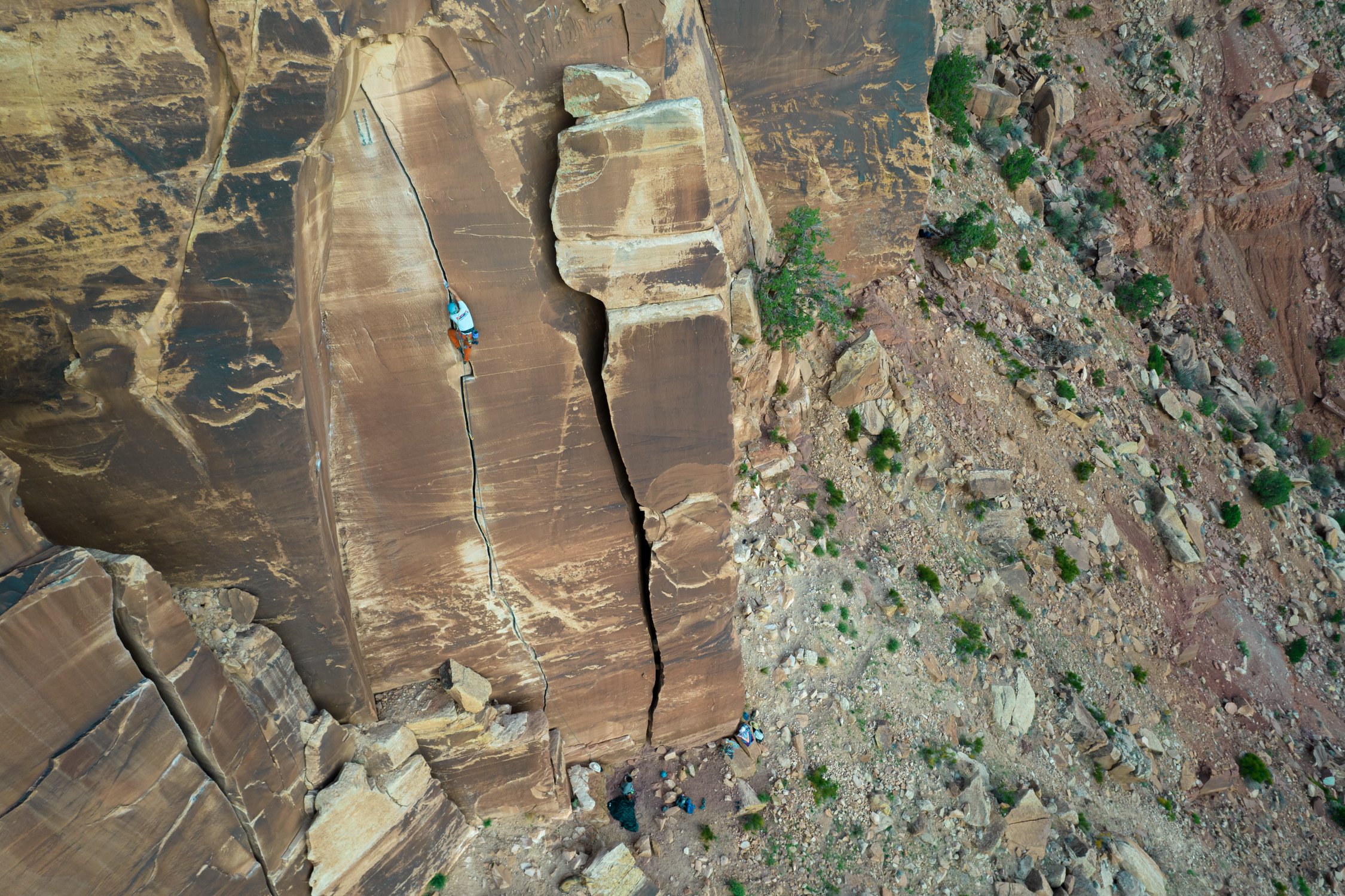Utah’s Move Out of Step with Tribes; Outdoor Community
BOULDER, Colo. – Today, the state of Utah announced a new lawsuit attacking President Biden’s decision to restore Bears Ears National Monument. Bears Ears is a sacred landscape to Native American Tribes and home to world class rock climbing visited by climbers from around the world. In filing this lawsuit, Utah attempts to undo permanent protections for this fragile and culturally significant landscape, which could eventually pave the way for extraction of natural resources.
“This move by Utah is totally out of step with what the outdoor community wants for this incredible landscape,” says Access Fund Executive Director Chris Winter. “When Access Fund asked the climbing community, 95% wanted to see Bears Ears restored or expanded. Climbers will continue to defend Bears Ears and support the Tribes who have led this campaign from the beginning.”
Bears Ears National Monument, UT. Ancestral lands of Navajo, Ute, Ute Mountain, Hopi, and Zuni. © James Q Martin
President Obama protected Bears Ears as a National Monument under the Antiquities Act in 2016 at the request of Native American Tribes who have cared for this landscape since time immemorial. Access Fund led the climbing community in its vocal support for permanent protection of Bears Ears.
Along with its partners, Access Fund filed a lawsuit just days after former President Trump’s December 2017 executive order to reduce the monument, arguing that the President’s order violated both the Antiquities Act and the United States Constitution. As a result of former President Trump’s 2017 executive order, a vast majority of Bears Ears lost landscape-level protections, and approximately 40% of the climbing areas in the original Bears Ears National Monument lost national monument status—including Valley of the Gods, Harts Draw, Lockhart Basin, and a portion of the climbing at Indian Creek.
In October of 2021, President Biden restored Bears Ears National Monument. Access Fund joined the historic White House celebration on behalf of the climbing community. Beyond just celebrating, Access Fund’s Climber Steward program—founded in 2021—works hard to educate climbers on low-impact practices and responsible recreation. And the organization has invested hundreds of thousands of dollars over the years in building sustainable trails and recreational infrastructure that protect natural and cultural resources.


